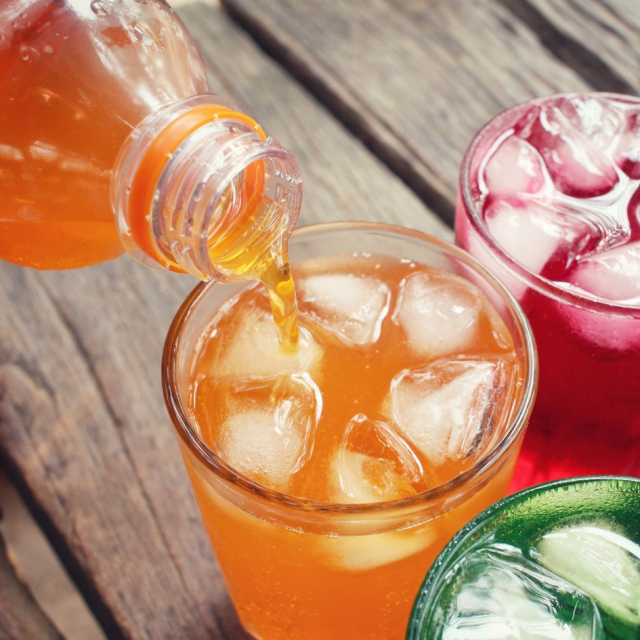Soft drinks, also known as sodas or carbonated beverages, are one of the most popular and controversial consumption options in the non-alcoholic beverage arena. Their effervescence, varied flavors, and accessibility have made them a symbol of modernity and globalization. However, behind their appeal, soft drinks generate debates over their impact on health, the environment, and the economy. This article explores the history of soft drinks, their composition, their role in culture, and the challenges they face today.
History of soft drinks.
The history of soda can be traced back to the 18th century, when English chemist Joseph Priestley discovered how to infuse water with carbon dioxide, creating what we now know as carbonated water. This discovery marked the beginning of fizzy drinks. In 1783, Johann Jacob Schweppe perfected the process and founded a company that made sparkling water, known today as Schweppes.
In the 19th century, sodas began to diversify by adding flavored syrups. Medicinal drinks like cola tonic became early versions of iconic soft drinks like Coca-Cola and Pepsi. What started as a medicinal product soon morphed into a recreational drink.
Composition of soft drinks.
Soft drinks usually have a basic composition:
- Carbonated water: Effervescent base that provides the characteristic bubbly sensation.
- Sugars or sweeteners: Ingredients such as high fructose corn syrup or refined sugar add sweetness. Diet versions use substitutes such as aspartame or sucralose.
- Flavors and colorings: They vary depending on the type of drink, from citrus to cola or fruit flavors.
- Acids: Phosphoric or citric acid provides acidity and helps preserve the drink.
- This simple formula has given rise to countless variations, from energy drinks to calorie-free sodas.
Popularity and role in culture.
Soft drinks have transcended cultural barriers and have become a symbol of modernity and lifestyle. Brands such as Coca-Cola and Pepsi are recognized worldwide and are associated with moments of celebration, social gatherings and innovative advertising.
In some countries, soft drinks even have specific cultural meanings. For example, in Mexico, Coca-Cola consumption is deeply rooted in rural and urban communities, while in Japan, exotically flavored soft drinks are part of a unique cultural experience.
Impact on health.
Excessive consumption of soft drinks is related to several health problems:
Obesity and diabetes.
The high sugar content in soda contributes to weight gain and insulin resistance, which increases the risk of type 2 diabetes.
Tooth decay.
The sugars and acids present in soft drinks erode tooth enamel, increasing the likelihood of cavities.
Bone and kidney problems.
Frequent consumption of phosphoric acid may be associated with loss of bone density, while sweetened soft drinks may increase the risk of kidney stones.
Awareness campaigns have led to increased demand for low-sugar or calorie-free options, but these also raise concerns about the use of artificial sweeteners and their potential long-term effects.
Environmental controversies.
The production and distribution of soft drinks have a significant impact on the environment. Key challenges include:
- Water use: Soft drink manufacturing requires large amounts of water, which can exacerbate water scarcity problems in some regions.
- Plastic waste: Plastic bottles and cans are a major source of environmental pollution. Despite efforts to promote recycling, much of this waste ends up in oceans and landfills.
- Carbon emissions: Transportation and production of beverages contribute to the global carbon footprint.
Economics and marketing.
The soft drink industry is one of the most lucrative in the world, with brands investing billions of dollars in advertising. These campaigns not only promote the product, but also influence popular culture, associating soft drinks with positive emotions such as happiness, friendship and success.
In addition, the industry has diversified its portfolio, offering flavored waters, teas and energy drinks, adapting to health and sustainability trends.
Alternatives and the future of soft drinks.
In a world where consumers are increasingly concerned about their health and the environment, the soft drink industry faces significant challenges. Current trends include:
- Sugar reduction: Reformulate products to reduce calorie content without sacrificing flavor.
- Sustainable packaging: Development of biodegradable bottles and reuse systems.
- Functional beverages: Incorporating ingredients such as vitamins, minerals or probiotics to attract health-conscious consumers.
Soft drinks are more than just a beverage; they represent an industry that has profoundly influenced culture, the economy and consumer habits. However, their impact on health and the environment puts them at the centre of a global debate.
Ultimately, the future of soft drinks will depend on companies' ability to adapt to an ever-changing world, where consumers are looking for healthier and more sustainable options. At the same time, individuals have a responsibility to consume these beverages in moderation and opt for alternatives that benefit both their well-being and the planet.






